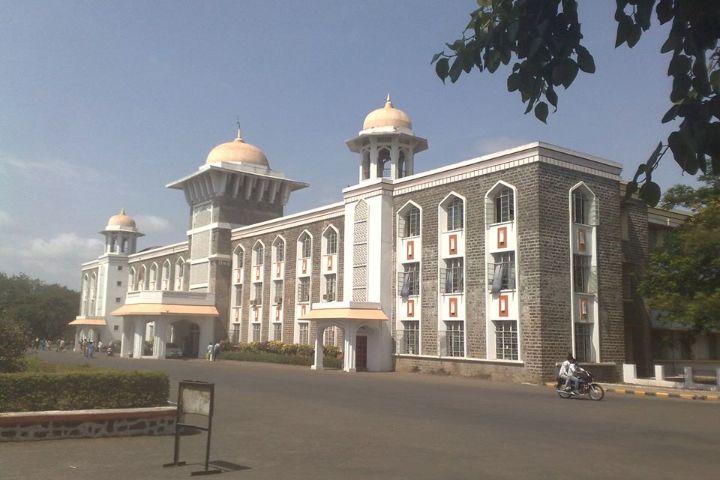
Archaeology Course Details - Fees, Subjects, Syllabus, Duration, Eligibility, Career Scope
Degrees offered: B.A., M.A., B.A.(Hons), M.Sc., Ph.D
What is Archaeology
Archaeology is the scientific study of material remains of prehistoric people. It is the scientific study of historic and prehistoric people and their cultures by analysing their artefacts such as stones, tools, and man-made objects. Archaeology aims to derive conclusions from these artefacts about the past.
It aims to answer how and why the behaviours of humans have changed over time. Archaeologists study the patterns in the evolution of cultural events and why they have occurred. It provides an understanding of history through the use of material objects. The course in Archaeology helps you to focus on how to uncover, interpret, and preserve material human history.
Graduates in Archaeology are hired for job profiles like Museum curator, Heritage Manager, Archaeologist, and Professor. Their annual salary ranges from Rs. 4 LPA- Rs. 6 LPA. The top recruiters in the field are Museums, Tourist Departments, Government Departments, State-level Government Departments, ASI, World Heritage Sites, Cultural Organisations, Art Galleries.
Highlights- Archaeology
Particulars | Values |
Branch Name | Archaeology |
Degree | B.A., B.A.(Hons), B.Sc., B.Sc.(Hons), BS, Diploma, M.A |
Duration | UG: 4 years PG: 2 years |
Eligibility | UG: 10+2 in any field PG: Bachelor’s degree in Archaeology or a similar field |
Admission Process | Admission Examination/ Direct Admission |
Entrance Exam | UG: IPU CET, CUEE PG: AUCET |
Course Fees | Rs. 16,480 to Rs. 30,000 |
Job Profiles | Museum curator, Heritage Manager, Archaeologist, Professor |
Average Salary | Rs. 4 LPA- 6 LPA |
Recruiting Companies | Museums, Tourist Departments, Government Departments, State-level Government Departments, ASI, World Heritage Sites, Cultural Organisations, Art Galleries |
Specialisation or Similar Ones
Specialisations or similar fields in archaeology provide opportunities for professionals to focus on specific aspects of the discipline or explore related areas. Here are some key specialisations and similar fields:
Prehistoric Archaeology | Classical Archaeology |
Egyptology | Anthropology |
Paleoanthropology | Art History |
Top Colleges in India Offering Archaeology with Fees
Many colleges in India offer Archaeology degree programmes. The admission process is based on an entrance examination or merit score. Students are advised to carefully check all the course details and eligibility criteria before applying for admission. In the table below, we have mentioned the top Archaeology colleges in India:
Colleges | Fee Structure |
- | |
Rs. 16,480 | |
- | |
- | |
Rs. 30,000 | |
Rs. 18,000 | |
- |
Note: The fee structure provided above can be for any particular Archaeology course (Diploma/ Degree/PGD).
Top Private Archaeology Colleges in India with Fees
There are various private colleges in India offering Archaeology courses in India at both undergraduate and postgraduate levels. Studying at a private college is comparatively more expensive than studying the same at a public institute. In the table below, we have listed the top private colleges in India offering Archaeology courses in India.
Colleges | Fee Structure |
Singhania University, Jhunjhunu | Rs. 30,000 |
Top Government Archaeology Colleges in India with Fees
Attending a government engineering college is less expensive than attending a private college. These colleges are well known for their high academic standards throughout India. The following are some of the best government colleges that provide Archaeology courses:
Colleges | Fee Structure |
Mumbai University | - |
Lucknow University | Rs. 16,480 |
Allahabad University | - |
UNIRAJ | - |
KUK Kurukshetra | Rs. 18,000 |
Shivaji University | - |
Eligibility Criteria (UG & PG) of Archaeology
The eligibility criteria decide the admission of the student to a particular course. If the candidate fulfils the criteria, then they are eligible for admission to the course. The eligibility criteria which candidates interested in pursuing the course need to fulfil are listed below.
Eligibility Criteria for UG Courses
Candidates who wish to pursue undergraduate courses in Archaeology must satisfy certain eligibility criteria. Some of the basic conditions for admission into the courses are as follows:
- Aspiring candidates must have completed their 10+2 in any stream from a recognised institution.
- Students must score a minimum of 50 per cent marks in their respective courses.
- Candidates belonging to the reserved categories may get some relaxation.
Top Entrance Exams for UG Courses
Aspiring candidates need to take certain entrance examinations to start with their Archaeology UG journey. Candidates who complete their undergraduate degree in Archaeology are eligible to pursue post-graduation in the same field.
Exam Name | Level | Conducting Body | Exam Schedule |
State university | Guru Gobind Singh Indraprastha University | ||
National level | Centurion University Bhubaneswar | - |
Eligibility Criteria for PG Courses
Candidates are eligible to pursue post-graduation courses in Archaeology if they satisfy certain eligibility criteria. These conditions vary from institution to institution, however, some basic eligibility criteria are as follows:
- Candidates aspiring for admission must have completed their bachelor’s degree in archaeology or a similar field from a recognised institution.
- They must have attained a minimum of 50 per cent marks in aggregate. The minimum percentage of marks can range between 45-60 per cent, depending on the college.
- In various colleges and universities, an entrance exam and personal interview are conducted for admission.
Top Entrance Exams for PG Courses
Candidates who have completed their undergraduate in a relevant field can post-graduation in the same field. To pursue higher education in Archaeology, students need to appear for the following examinations.
Exam Name | Level | Conducting Body | Exam Schedule |
AUCET | National | Andhra University | - |
National | National Testing Agency |
Scope of Archaeology in India and Abroad
Archaeology offers diverse career opportunities in India and abroad, spanning academic research, museum curation, heritage management, and cultural resource management. The professionals in Archaeology can work in multiple organisations which undertake a broad selection of tasks. In India, rich historical and cultural heritage sites provide extensive fieldwork and research prospects, supported by government and private sector funding.
Due to the importance of Archeology, the demand for qualified graduates has also increased. In India, Archaeologists can work at the Archaeological Survey of India, Defence Services, Council of Cultural Relations, Department of the Ministry of External Affairs, and many other departments in the exploration, excavation, epigraphy, prehistory and museum branches.
Course Fees Archaeology
| Minimum Fees | Maximum Fees | |||
|---|---|---|---|---|
| Private | Government | Private | Government | |
| UG | ||||
| PG | ||||
| DOCTORAL | ||||
| DIPLOMA | ||||
Course Subjects
The students who have an interest and wish to gain further knowledge about the field of Archaeology should opt for this course. The students should have a high interest and dedication towards the subjects that are taught in this course. The course and the subjects need the candidate to do a rigorous study to get better at the course for further opportunities.
Archaeology syllabus for UG courses
The academic curriculum of undergraduate courses in Archaeology provide a holistic learning experience to students. The subjects cover various aspects of the field and hence, enrich the knowledge of students. We have provided the syllabus of BA (Archaeology & Museology) provided by CSJMU Kanpur:
First Semester | Second Semester |
Introduction to Archaeology | Introduction to Museum & Museology |
Third Semester | Fourth Semester |
Art & Architecture of Ancient India | Collection Management |
Art & Architecture of Uttar Pradesh | - |
Fifth Semester | Sixth Semester |
Field Archaeology | Indian Epigraphy & Numismatics |
Museum Education and Public Relations | Care & Conservation |
Practical Aspect of Archaeology & Museology | Preventive conservation in Museology |
Study of Local Culture & Report Writing | Museum Visit : Project Report |
Archaeology syllabus for PG courses
The Archaeology syllabus for PG courses varies by institution. However, the course curriculum of all the universities ensures necessary exposure of theoretical knowledge to students. We have provided below the syllabus of M.A. Archaeology offered by the University of Kerala:
First Semester | Second Semester |
Principles and Methods in Archaeology | Proto History |
World Prehistory | Early Iron Age of India |
Indian Prehistory | Early Indian Art |
Ancient Indian History | Indian Architecture |
Third Semester | Fourth Semester |
Research Methodology | Palaeography and Epigraphy |
Ancient Indian Iconography | Ancient Indian Numismatics |
Archaeology of Kerala | Dissertation |
Heritage and Museum Management | Science in Archaeology |
Pottery and Ceramics | Field Archaeology (Explorations and Excavations) |
Zooarchaeology in Practice | Field Archaeology (Study Tour of Monuments) |
Careers in Archaeology
The students who are qualified in Archaeology can opt for a career in government as well as private sectors. In this profession, the jobs are mostly offered to the ones who have an interest in history. The desired candidates can also find jobs in the Government sector by taking some examinations.
Once you complete a degree in Archaeology, you’re hired in various job positions in your area of interest so that you perform better and help the organisation grow stronger. Some of the career options are:
Job Profiles | Job Descriptions |
Archaeologists study the past and different aspects of the lives of living beings by the way of excavating, dating, and interpreting objects and historical materials. They aim to reconstruct historical lifestyles, cultures, and environments to understand the development of human civilization. | |
Museum Curator | Museum Curators are responsible for assembling, cataloguing, and managing and also helping to present and display the artistic and cultural collection. They are the ones who are in charge of a collection of exhibits |
Heritage Manager | Heritage Managers are one who manages and conserves the heritage sites and also supervises and looks after the access to the historical sites. They work to ensure that historical sites and collections are maintained for future generations, often coordinating conservation efforts and educational programmes. |
Lecturers are academic professionals who teaches and conducts research related to Archaeology at colleges or universities. They deliver lectures, prepare course materials, and guide students in Archaeology and research projects. |
Upcoming trends
Archaeology is a field that needs a lot of knowledge and awareness about history and the trends related to history so that it helps them to have a thorough understanding of the course. The professionals should be updated about the current ongoing work in the field of Archaeology.
- Excavation techniques and micromorphology
- Palaeogenetics
- Using innovative technologies for the archaeological discoveries
- Modern tools to solve a mystery
Job Profiles and Top Recruiters
Archaeology is one of the fields that has a very broad career scope. The candidates have access to diverse job opportunities after they complete their studies. Archaeology is one of the best choices you can make to pursue a career for your future. There are plenty of career opportunities that are available in the field of Archaeology.
India is a country that has a rich cultural heritage based on which the need and demand for professionals in the field of Archaeology have increased. The professionals in Archaeology indeed have a great scope for jobs as well as research in the various colleges and universities.
Top Recruiters:
- Museums
- Tourist Departments
- Government Departments
- State-level Government Departments
- ASI
- World Heritage Sites
- Cultural Organisations
- Art Galleries
Average Salary
The average salary of an Archeology graduate may vary depending on the job profile opted by the candidate, and the skills and experiences of the candidate. In the table below, we have mentioned the average salaries of popular job profiles after Archeology.
Job Profiles | Average Expected Salary |
Museum curator | Rs. 3 to 6 Lakhs p.a. (Approx.) |
Heritage Manager | Rs. 4 to 7 Lakhs p.a. (Approx.) |
Archaeologist | Rs. 3 to 8 Lakhs p.a. (Approx.) |
Professor | Rs. 5 to 8 Lakhs p.a. (Approx.) |
Source: Ambition Box
The salary figures mentioned anywhere in these articles are just for reference purposes. Please treat them as such. Actual salaries may vary depending on respective candidates, employer, job location, and numerous other factors.
Required Skillset for Archaeology
A career in archaeology requires a diverse skill set that spans both technical expertise and soft skills. These skills ensure that archaeologists can effectively uncover, analyse, and preserve historical and cultural treasures, contributing valuable knowledge to our understanding of the past. Here are the key skills necessary for archaeology success:
- Excellent Research Skills
- Ability to Work Methodically
- Planning/Project Management Skills
- Good Knowledge and Interest in History
- Photography Skills
- Technological Skills
- Cultural Awareness
Course Curriculum for Archaeology
Pursuing a degree in Archaeology is the chance to work at historical sites, which comprises the restoration of monuments and exploring the ancient history of the country. Archaeology is the field that involves the investigation of the materials that were developed by human societies in previous times.
The primary objective of the course curriculum is to study human cultures in the past through various mediums. The course curriculum includes interesting subjects that help the candidate study even better and do well in their academics for further job opportunities. The subjects are ideal for those who have an interest in studying ancient history.
Popular Archaeology Entrance Exams in India
Frequently Asked Questions (FAQs)
Question: Can I do a bachelor’s degree in Archaeology after my 12th?
Answer :
Yes, you can join a course in Archaeology after your 12th. However you should ensure that you match the eligibility criteria that are set up by the various colleges or universities. If you have an interest in learning more about ancient history and the past, then you can opt for this course.
Question: Is there any entrance examination for admission to the Archaeology course?
Answer :
Few colleges conduct entrance examinations to grant admission to the candidate while some of the colleges provide admission based on the merit marks that they score. Some of the popular exams include IPU CET, CUET UG, and CUET PG.
Question: What are the eligibility criteria to pursue a bachelor’s course in Archaeology?
Answer :
The eligibility criteria are different for every college. The students who want to be admitted to the Bachelor’s course in Archaeology should be a 10+2 pass from a recognised board or university. They should have a minimum aggregate of 50 per cent marks or equivalent to be eligible for the course and should have passed the entrance examination if any taken by the college or university.
Question: What are some of the job profiles after completing the course in Archaeology?
Answer :
Archeologists, Heritage Managers, Tourist Guides, and Trip Organisers are the popular job roles after Archeology courses.
Question: What is the duration if I wish to do a Masters in Archaeology?
Answer :
Once you complete your Bachelor’s in Archaeology, then you can apply for a master's in Archaeology. The duration of the course is generally two years spread across four semesters.

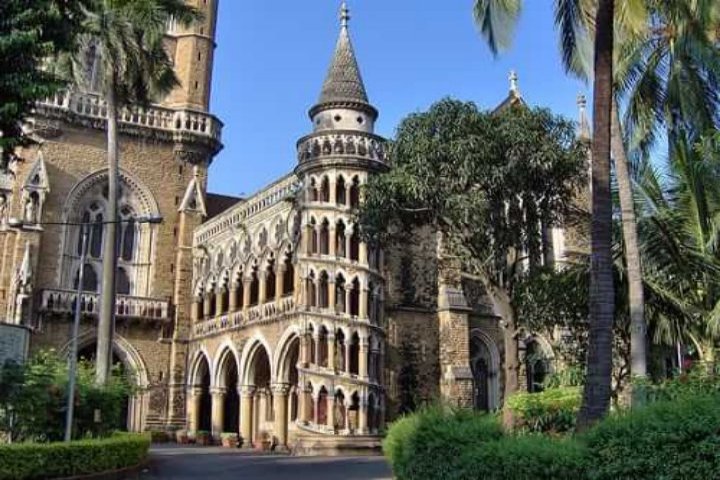
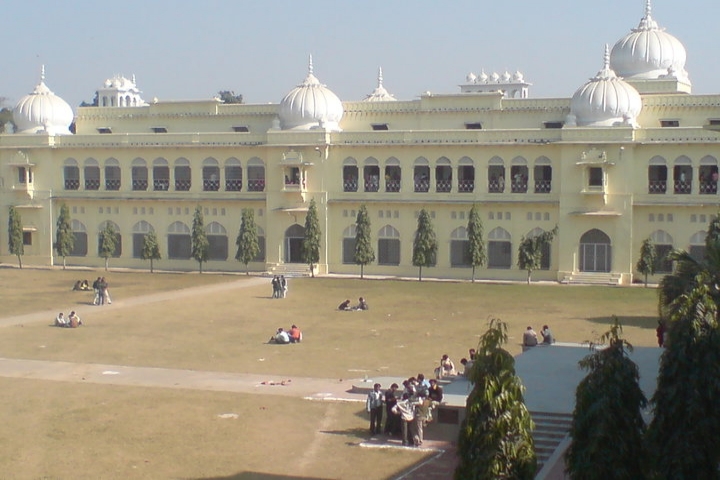
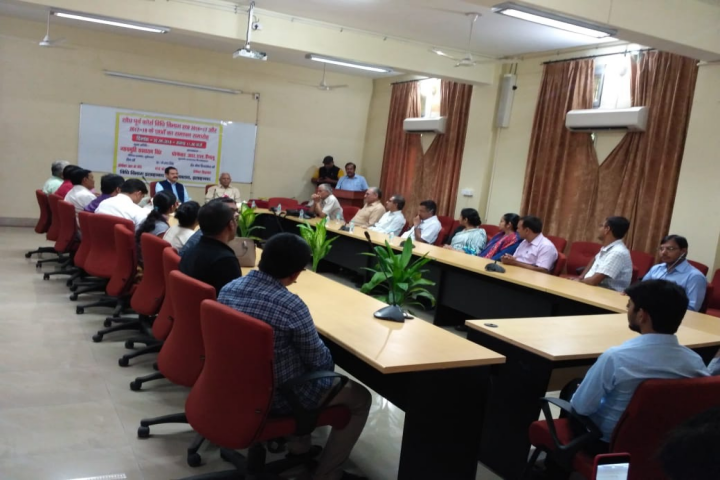
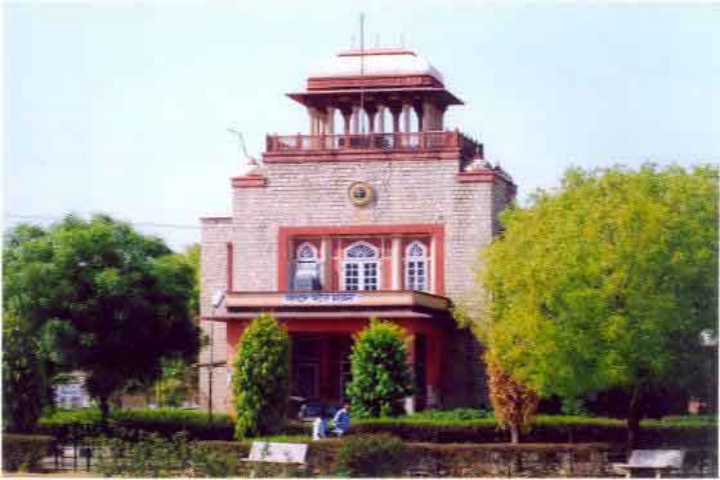
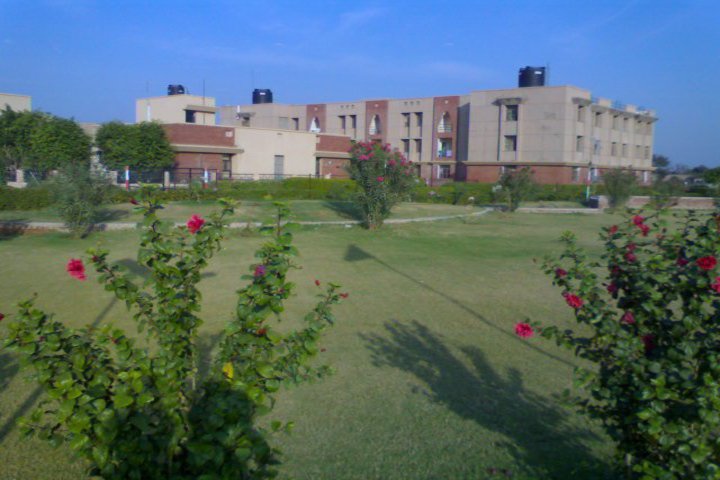
.JPG)
